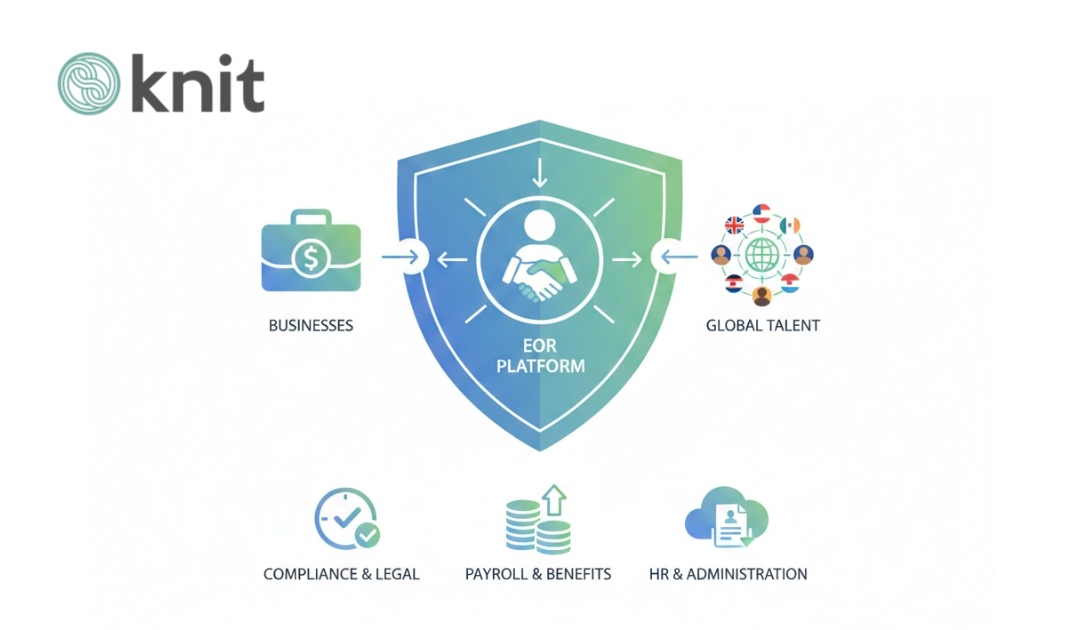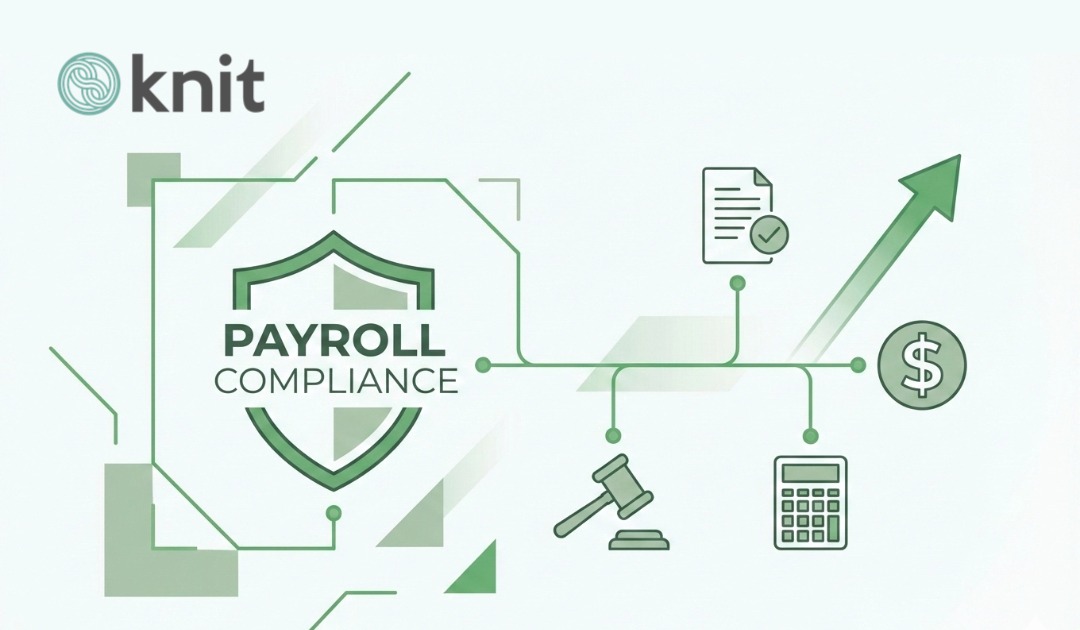Table of Contents
Businesses looking to expand their global footprint need to be able to draw on the best in local talent and expertise. Often, this means establishing a presence in foreign markets through the use of professional employer organizations (PEOs) or employer of record (EOR) services.
PEOs and EORs offer valuable support and assistance for businesses navigating unfamiliar legal and administrative landscapes.
However, understanding the differences between these two types of solutions is important when choosing the one that best suits your business needs.
In this guide, we will define PEOs and EORs, outline their fundamental differences, and provide a step-by-step approach to choosing the right solution for your business.
What is a PEO?

Let's start by defining a PEO. A professional employer organization (PEO) is a third-party human resources provider that handles various HR functions for their client companies.
This includes matters such as payroll, benefits administration, regulatory compliance, and employee relations.
In a PEO arrangement, the client company retains control over the day-to-day operations and management of their employees, while the PEO takes care of all administrative tasks related to HR.
Critically, a PEO is a partner company and not the direct employer of the client's workers. This means the PEO has no legal or financial responsibility for the employees.
What are PEOs responsible for?
PEOs typically take care of the following responsibilities for their client companies:
- Payroll and Benefits Administration: This includes calculating and distributing employee paychecks, managing benefits enrollment and administration, records of employment, and handling tax withholding and reporting.
- Regulatory Compliance: PEOs help ensure that their client companies comply with all relevant employment laws and regulations in the countries where they operate.
- HR Support: PEOs provide assistance with employee relations, performance management, and other HR-related tasks.
What are the benefits of a PEO?
There are several advantages to using a PEO for your HR needs, including:
- Cost Savings: By outsourcing HR functions to a PEO, businesses can save on the costs associated with hiring and managing an in-house HR team.
- Expertise and Knowledge: PEOs are experts in local labour laws and regulations, allowing businesses to benefit from their knowledge without navigating the complexities themselves.
- Risk Management: PEOs help mitigate business risk by ensuring legal compliance and handling potential HR disputes.
What is an EOR?
An employer of record (EOR) is a company that serves as the legal employer for workers hired by another organization.
In this arrangement, the EOR takes on all legal and financial responsibilities for the employees while the client company retains operational control.
To simplify, the EOR acts as an intermediary between the client company and its workers in locations where the client doesn't own a legal entity. This allows businesses to hire employees in other countries without the need for establishing a legal presence.
What are EORs responsible for?
EORs typically handle the following responsibilities:
- Employment Contracts: As the legal employer, EORs are responsible for drafting and managing employment contracts with workers on behalf of their client company.
- Payroll and Benefits Administration: EORs handle all aspects of payroll and benefits administration for their client company's employees, including compliance with local laws and regulations.
- Legal Compliance: EORs ensure that businesses comply with all relevant labour laws and regulations in the countries where they operate.
- Locality-specific onboarding: EORs assist with onboarding new employees in different countries and handling any necessary paperwork or documentation and areas where the client does not have an established legal entity.
What are the benefits of an EOR?
Like PEOs, using an EOR has many advantages, including:
- Simplified Expansion: Using an EOR allows businesses to expand into new markets without going through the complex process of establishing a legal entity in each location.
- Legal Compliance: An EOR is responsible for ensuring compliance with local employment laws in all countries where their client operates, reducing the risk for businesses.
- Flexibility and Scalability: EORs allow businesses to hire employees on a temporary or project basis, providing flexibility and scalability for companies looking to enter new markets.
PEO vs. EOR: the critical differences
While PEOs and EORs have some similarities in terms of the services they offer, there are a few key differences that businesses need to be aware of when choosing between the two.
Control over employees
One of the most significant differences between PEOs and EORs is who controls employees.
In a PEO arrangement, the client company retains operational control, and the PEO takes care of administrative tasks. This means that the client company makes all decisions related to hiring, firing, and managing employees.
In contrast, an EOR acts as the legal employer and holds more control over employees' day-to-day activities.
Legal responsibility

Another important difference between PEOs and EORs is their level of legal responsibility for employees.
As a partner company, a PEO does not hold any legal or financial responsibility for their client's workers. This means that the client company is solely responsible in any HR disputes or legal issues.
In contrast, EORs take full legal and financial responsibility as the employer of record. They are legally liable for all employee-related matters, including payroll, benefits, and any legal issues that may arise.
Geographic reach
One of the primary reasons businesses opt for PEO or EOR services is to expand their operations into new countries. However, there are some differences in terms of their geographic reach.
PEOs usually operate within a specific country or region, meaning they may have limitations regarding where they can provide services. In contrast, EORs have a more global reach and can assist businesses in hiring employees in multiple countries. This is because EORs already have local entities established in the hiring countries.
Scale and scope of services
Finally, PEOs and EORs may differ in terms of the scale and scope of services they offer.
PEOs manage payroll administration and taxes but don’t always manage the benefits, reimbursements, or holidays.
EORs, on the other hand, focus primarily on employment-related tasks such as payroll and benefits administration, benefits, legal compliance, and onboarding.
Flexibility and growth
The structural and risk management differences between PEOs and EORs make each option appealing to different types of businesses.
The co-employer arrangement of PEOs allows businesses to retain control over employees while outsourcing administrative tasks. This can benefit companies looking to maintain complete control of their operations and favours hiring full-time employees.
Alternatively, EORs are ideal for businesses looking to expand quickly and efficiently into new markets without taking on the legal and financial responsibility that comes with it.
They also offer flexibility and scalability by using temporary employees or independent contractors for short-term projects, making them an attractive option for companies with fluctuating staffing needs.
PEO vs. EOR: which one to choose?
When it comes to PEO vs. EOR, there are a few key considerations to keep in mind when deciding which option is best for your business. These include:
Business goals and needs
Consider your company's current and future goals, as well as the specific HR tasks you need assistance with, to determine whether a PEO or EOR would be a better fit.
For example, if your company is looking to expand globally and needs assistance with managing HR tasks in multiple countries, an EOR may be a better option. If you require more comprehensive HR services, such as employee training and development, a PEO may be the way to go.
Geographic reach
If your business operates in a specific country or region, a PEO with expertise in that area may be a suitable option. However, an EOR with a broader geographic reach may be better if you plan to expand into multiple countries or operate globally.
Budget
PEOs and EORs vary in terms of cost, so it's essential to consider your budget when making a decision. Typically, PEOs charge a percentage of the total payroll, while EORs charge a flat fee per employee. Depending on your budget, one option may be more cost-effective than the other.
Legal and compliance considerations
If you are concerned about legal and compliance issues, an EOR may be the better option as they take on full responsibility for employment-related matters.
As the EOR acts as the legal employer, they are well-versed in local labour laws and regulations and can ensure your business remains compliant. PEOs may also offer compliance support, but it is not their primary focus
Control over employees
If you prefer to maintain control over your employees' day-to-day activities, a PEO may be a better option. This is because they act as an administrative partner and allow you to make all decisions related to hiring, firing, and managing employees.
However, if you are looking for a more hands-off approach, an EOR may be a better fit as they take on the role of employer of record and handle employee-related tasks on your behalf.
PEO vs. EOR: Asking the right questions
The considerations above can help guide your decision when choosing between a PEO and EOR. However, it's essential to ask the right questions to ensure you make an informed choice.
Some questions to ask include:
Am I hiring full-time workers or contractors?
The difference between full-time employees and contractors may impact which option is best for your business. PEOs typically work with full-time employees, while EORs can often assist with hiring both full-time workers and contractors. This is because EORs act as the legal employer, making hiring contractors in different locations easier.
What level of control do I want over my employees?
A PEO may be the better choice if you prefer to have more control over your employees' day-to-day activities. This is because you retain operational control while the PEO handles administrative tasks.
If you are looking for a more hands-off approach, an EOR may be a better fit. EORs act as the legal employer and take care of employment-related tasks on your behalf, giving you more freedom to focus on other aspects of your business.
Am I looking for comprehensive HR services or just assistance with employment-related tasks?
If you require a wide range of HR services, such as payroll administration and employee training, a PEO may be the better option. Many PEOs specialize in providing comprehensive HR solutions to businesses of all sizes.
However, if you only need help with employment-related tasks such as legal compliance and payroll administration, an EOR may be a more suitable choice. They focus primarily on these tasks and may not offer additional HR services.
Will I be expanding into multiple countries?
If you plan to expand globally or operate in multiple countries, an EOR may be a better fit due to their broader geographic reach and ability to assist with local compliance.
If, on the other hand, your business is primarily focused on one country or region, a local PEO may be the more suitable option enabling you to benefit from their in-depth knowledge of local labour laws and regulations.
Choosing the right partner for your business!
By asking the right questions and considering the key differences between PEOs and EORs, you can make an informed decision about which option is best for your business.
Ultimately, both arrangements offer valuable benefits, and choosing the right one depends on your unique business needs and goals.
If you are still unsure about which option to choose, Knit is here to help. As a global EOR, Knit offers comprehensive employment solutions for companies of all sizes looking to expand globally.
Contact us today to learn more about how we can support your business's growth and success with the best in global talent management.








.svg)
.svg)
.svg)
.svg)
.svg)